A country the US still calls ‘terrorist’ celebrates the legacy of a US civil rights leader
On 15 February, I was in Havana. I was traveling with a group organized by the Center for Global Justice, which is based in San Miguel de Allende, Mexico. Because we were being hosted by the Centro de Martin Luther King, founded in 1987, I had the incredible opportunity to join with others living in this neighborhood, located in the municipality of Marianao, in celebrating the life of Dr. King. In addition to gathering to hear words of one of the center’s pastors, those of us participating in the celebration wrote some words on a flower-shaped paper and pasted it on the metal sculpture that is displayed on the wall in the entry corridor of the center.
I participated in this trip to Cuba to honor Cliff DuRand, one of the founders of the CGJ and the long-time leaders of the Cuba trips, who passed away last year. I traveled with a group of seven participants, all of whom are US citizens and four of whom are currently living in San Miguel de Allende.
During our time in Havana, we toured historic sites, including the memorial to the October Crisis, what in the US is usually referred to as the Cuban Missile Crisis (of 1962). There we encountered pictographs and text telling the story of what led up to the confrontation that I recall motivating my junior high school teachers in southern California to have us practice climbing under our desks to “protect” us from the possible nuclear attack. Being at this site also reminded me of a visit to a Chinese restaurant just outside of Washington, DC, where the menu states that this is where the Soviet and US (but not Cuban) diplomats met in efforts to find a solution to this crisis.
In other activities we learned about the state of the Cuban economy, which continues to be affected negatively by the 60-plus years of the US blockade (some refer to it as an embargo) and the ridiculous inclusion of Cuba on the State Department’s list of state sponsors of terrorism. Another seminar focused on the workings of Cuba’s political system, including the reforms incorporated in the 2019 Constitution, as well as glimpses of the challenges faced and resilience exhibited by Cubans in their daily lives today.
We were also privileged to have a special performance by a talented female dancer, demonstrating the range of Cuban traditional rhythms as well as an evening in a club where the Buena Vista Social Club entertained.
We also spent time at organoponic farm, where we learned about urban agriculture initiatives and Cuba’s commitment to grow more of its own food—without chemical fertilizers. That afternoon we visited a non-governmental organization program that provided free programs for youth to develop knowledge and skills in painting, drawing, and other artistic expressions.
Our time in Havana also included a visit to the Fidel Castro Center, an amazing multi-media installation depicting various aspects of the Comandante’s life and contributions to Cuba—and the world. One incredible feature of Revolutionary Cuba is universal, free access to healthcare. We came to appreciate this during a visit with a physician, whose 800 patients lived within walking distance of her home/clinic. She had been serving this community, with the help of a nurse and the possibility of referring patients in need to a nearby polyclinic or a general or specialized hospital, for more than 30 years.
After brief, but informative visits to Cienfuegos and Trinidad, we returned to Havana and had a seminar about the Families Code, passed in a referendum in 2021, which explicitly recognized adults of all genders and ages as heads of households, while also specifying the rights and responsibilities of children and adults in families. We also had the chance to visit the “Black Doll” community project, received a guided tour of the House of Africa, and learned about the beliefs and practices of those who follow the Yoruba religion.
One of the things that sticks out in my mind about this trip are the number of times that our guides at cultural, agricultural, or community project sites mentioned—in a joking, but bitingly sarcastic manner—that Cuba was not a country that sponsored terrorism. Indeed, Cuba has at least since 1959 been the target of terrorist actions sponsored by the U.S. government.
For people who want to contact President Biden and their senators and congressional representative, go to the site organized by the National Network on Cuba (NNOC) and the Alliance for Cuba Engagement and Respect (ACERE).

